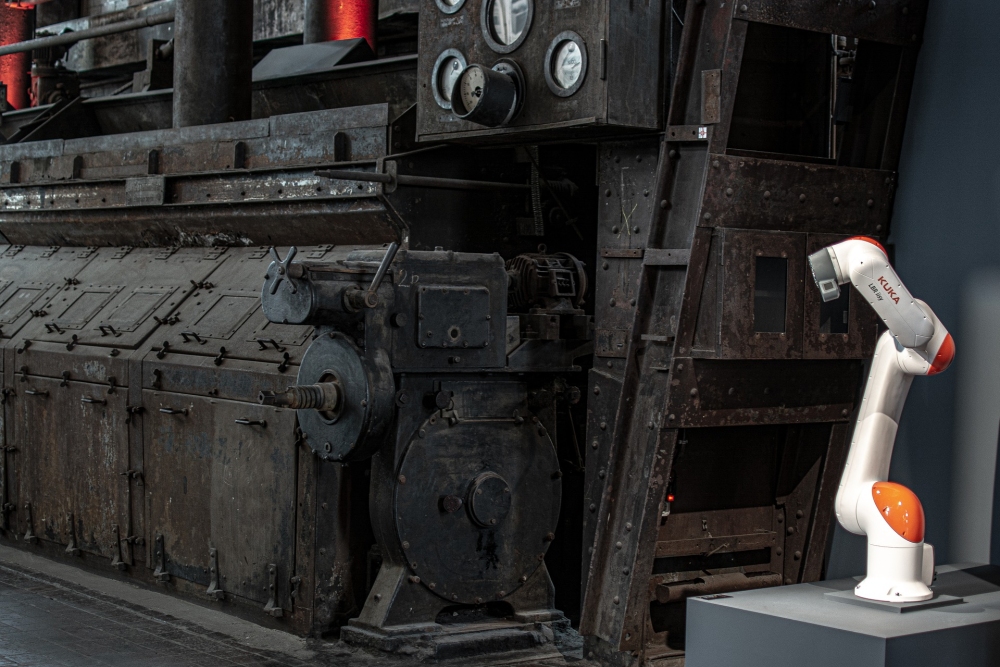Advanced technologies for industrial innovation: shaping Europe´s future
The European Commission has been spearheading numerous projects to advance the adoption of cutting-edge technologies across industries, particularly focusing on supporting small and medium-sized enterprises (SMEs) and key enabling technologies (KETs). These advanced technologies, including artificial intelligence (AI), big data, and Internet of Things (IoT), are pivotal to driving innovation and fostering growth in Europe’s industrial sector. As industries evolve, their reliance on digital transformation continues to expand, offering unprecedented opportunities for growth and modernization.
Industrial Applications of AI and Big Data
The integration of artificial intelligence and big data into industrial processes is reshaping how companies operate. AI, considered one of the most significant technologies of the 21st century, brings enhanced productivity, efficiency, and corporate performance. SMEs, in particular, stand to benefit immensely from AI's potential, as it offers tailored solutions to operational challenges and boosts competitiveness.
However, many SMEs face challenges in adopting AI technologies due to a lack of resources and expertise. The European Commission is addressing this issue by supporting AI deployment in strategic value chains, ensuring that SMEs can keep pace with technological advances and leverage AI for competitive advantage. Alongside AI, big data and business-to-business (B2B) digital platforms are transforming how industries share, analyze, and utilize data. Despite the potential, many industries have yet to fully tap into the benefits of data sharing. To accelerate progress, the European Commission is conducting big data pilot projects to explore new business models and the innovation potential created by data exchange between companies.
The Role of Advanced Technologies in European Industrial Policy
The importance of advanced technologies cannot be overstated. These innovations represent a fusion of digital and physical systems, enabling the development of smart products and services while creating entirely new industries. Key enabling technologies (KETs), such as advanced manufacturing, robotics, and 3D printing, are helping to modernize Europe’s industrial base and address critical societal challenges, including climate change and sustainability.
As part of its industrial policy, the European Commission continues to emphasize the adoption of advanced technologies. This includes supporting SMEs through projects that monitor technology development and providing strategic guidance to ensure that industries can effectively integrate these technologies into their operations.
Intelligent Cities Challenge: A Vision for Sustainable Growth
The future of advanced technologies is not only industrial but also urban. The Intelligent Cities Challenge (ICC) recognizes the pivotal role cities play in the EU’s future. Through ICC initiatives, cities can leverage digital technologies to enhance social fairness, prosperity, and sustainable growth in line with the 'European Green Deal'. By fostering innovation ecosystems, cities can mobilize stakeholders and local resources to create climate-neutral, tech-enabled environments that improve the quality of life for citizens.
The 100 Intelligent Cities Challenge, one of the EU's flagship projects, demonstrates how digital technologies can be used to address urban challenges, promote sustainability, and drive local economic growth. By connecting cities, technology, and policy, the ICC aims to create a collaborative framework that benefits both citizens and businesses alike.
Bridging the Gap: SMEs and Advanced Technologies
Despite the potential benefits, the uptake of advanced technologies varies across industries, sectors, and regions in the EU. A significant disparity exists between large enterprises and SMEs when it comes to the adoption of these innovations. To address these challenges, the European Commission has developed targeted initiatives to monitor the development of advanced technologies and ensure that SMEs receive the support they need to implement KETs effectively.
This gap in technology adoption hinders SMEs from fully reaping the benefits of the collaborative economy and innovative business models. Addressing this, the European Commission is working on improving access to tools and support mechanisms that can help SMEs integrate advanced technologies into their operations, empowering them to compete on a global scale.
Strategic Policy Forum on Digital Entrepreneurship
In 2014, the Strategic Policy Forum on Digital Entrepreneurship was established as a two-year think tank comprising business leaders, academics, international organizations, and policymakers. Its mission was to advise the European Commission on the development of digital transformation policies and foster entrepreneurship in the digital age. Over its mandate, the Forum produced several reports outlining recommendations for accelerating the digital transformation of European industry, which have since influenced policy at both national and regional levels.
The Forum’s work highlights the need for a coordinated effort in promoting digital entrepreneurship and fostering a competitive, innovative industrial landscape. By prioritizing digital transformation, the EU is positioning itself as a global leader in emerging markets, offering cutting-edge products and services while maintaining its commitment to sustainability and societal progress.
Conclusion
Advanced technologies such as AI, big data, IoT, and 3D printing are driving Europe's industrial revolution, with the potential to reshape industries, modernize urban landscapes, and address pressing societal challenges. The European Commission's proactive role in supporting SMEs, fostering digital entrepreneurship, and promoting sustainable growth through initiatives like the Intelligent Cities Challenge ensures that Europe remains at the forefront of global technological advancements. Through these efforts, Europe is poised to expand its leadership in emerging markets and deliver innovative, future-ready solutions for industries and societies alike.
Photo: Stefan Parnet from Pixabay
SOURCE: European Commission
